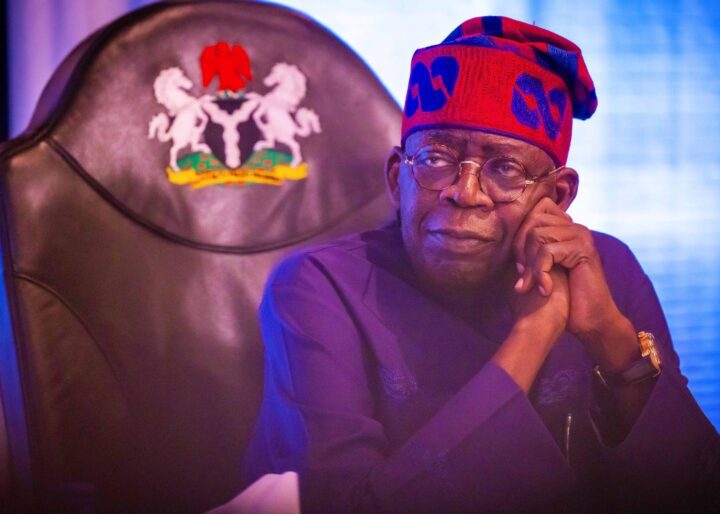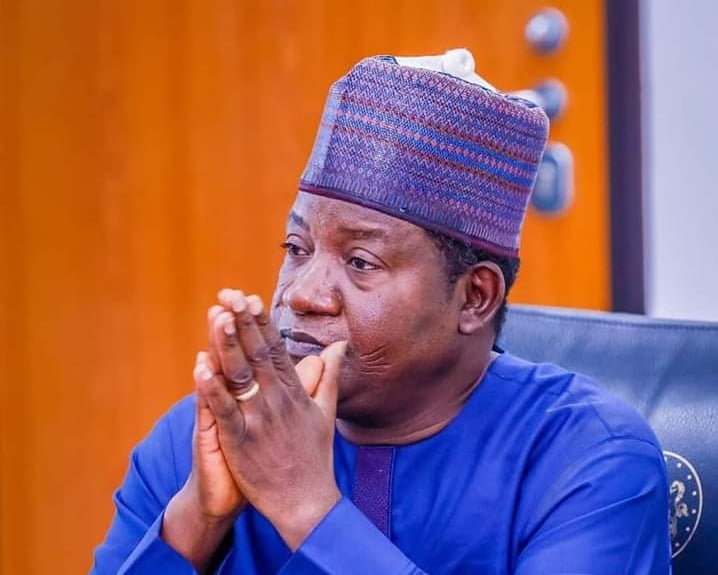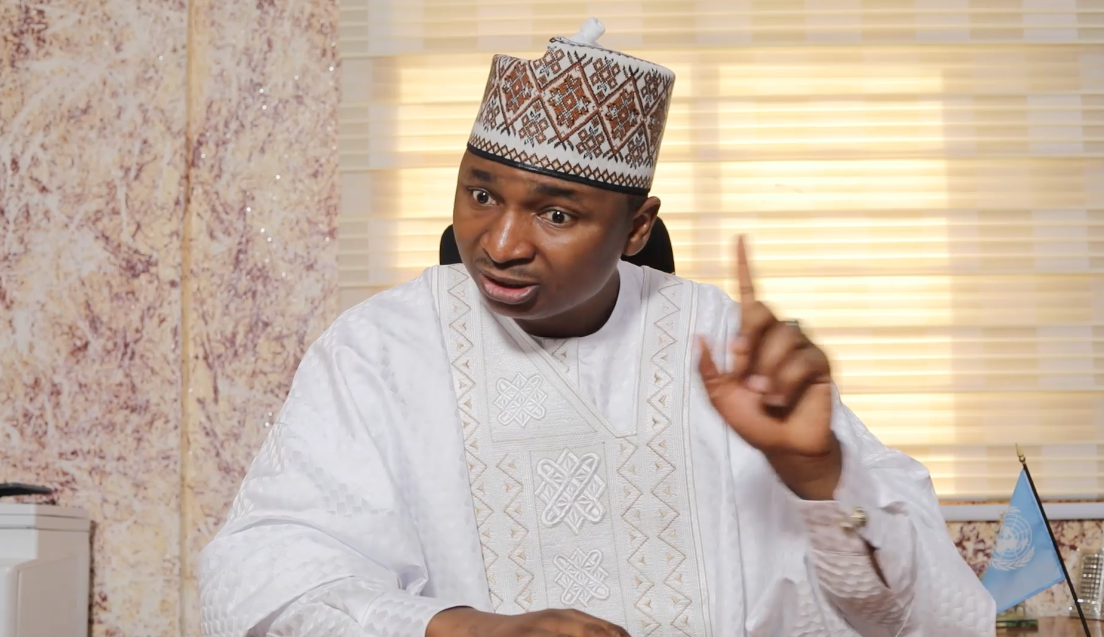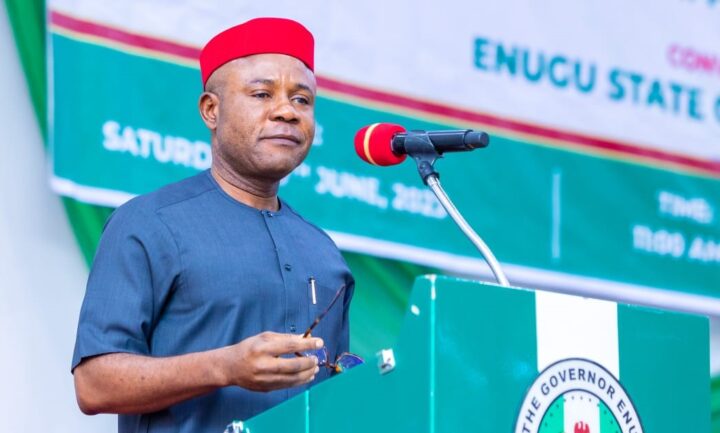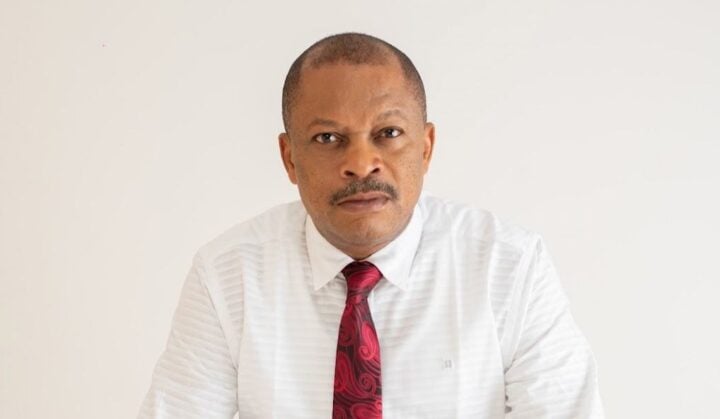BY KEEM ABDUL
Perhaps the best way to illustrate the proper response to the recent steps taken by Nigeria’s President, Asiwaju Bola Ahmed Tinubu, to reform the country’s taxation profile and their likely impact on businesses and households in both the short and long term, is to reference a recent event that took place in Lagos. On Wednesday, July 7, 2023, at the Eko Hotels and Suites on Victoria Island, the World Bank’s Country Director in Nigeria, Dr. Shubam Chaudury, was the Keynote Speaker at the opening ceremony and dinner of the 17th Annual Conference of the Nigerian Bar Association’s Section on Business Law (NBA-SBL). Four things, he said, were critical for a country to achieve sustained economic growth that benefits ALL ( not just a lucky few) of its citizens: good governance based on the rule of law; internal security (ie safety of lives and property); robust investments in human capital; and the ability to unlock private sector investment for accelerated job creation.
Having previously served in this same capacity in Indonesia, among other countries in Asia, the Indian economist could not help but make the inevitable comparisons others have made in the past between that country and Nigeria (two countries with roughly the same population; the same ethnic diversity; roughly three decades of military rule, followed by what he called ‘a noisy democracy’ in the late 1990s; vast reserves of oil and gas; etc) and asked rhetorically how come Indonesia, which was actually behind Nigeria in most developmental indices back in the 1960s and ’70s, caught up with and then overtook Nigeria in the ’80s and ’90s (to the point where, today, Indonesia sits amongst the top 20 economies in the world, while Nigeria has the 6th lowest human capital index on the planet).
In his over 5 years of service in Nigeria, Chaudury said in answer to his own question, he has felt no small amount of frustration at the inability (or refusal) of governments – at both national and subnational levels – to tick any of the 4 aforementioned boxes in any meaningful way. Since the coming of the Tinubu Administration, however, that frustration, he said, is gradually giving way to suppressed excitement, seeing the policy thrust so far indicated by the government’s actions on fuel subsidy and the promotion of a market-responsive naira exchange rate, to name just two. He now feels somewhat fortunate, he added, to be in Nigeria at such a time as this.
Advertisement
Perhaps cognisant of the fact that the actions taken so far cannot, by themselves, unlock private sector investment for job creation, the Tinubu Administration has indicated in the past few days, a clear direction on issues that militate against growth – such as taxation and the dearth of investment in key sectors of the economy, all of which have had a not-so-savoury impact on Nigeria’s ease-of-doing-business index.
Tax is a vexed issue in any jurisdiction on earth. In order words, NOBODY likes to pay tax on a good day. As someone once put it, while a fine is a tax for doing bad, a tax is a fine for doing well. And it seems that the better you’re doing, the more often (and the more diligently), the tax man comes after you – especially when he sees that, as the Americans say, he has what it takes to take what you have.
While tax is as inevitable as death, tax regimes differ. On the one hand, Nigeria ranks low on the global ease of paying taxes index, while the country’s Tax to GDP ratio is one of the lowest in the world and well below the African average – a situation which has led to an overreliance on borrowing to finance public spending, which in turn limits the fiscal space as debt service costs consume a greater portion of government revenue, annually resulting in a vicious cycle of inadequate funding for socio-economic development. And needless to say, the developmental outcomes have so far not been transformative enough to change the narrative. On the other hand, in Nigeria, experts have identified a rather predatory tax regime characterised by excessive or multiple taxation as perhaps the number one killer of growth, and they have called for a streamlining of the taxation system in order to make it more friendly to players in the real sectors of the Nigerian economy. A less cumbersome tax environment, they reason, allows businesses – especially small and medium enterprises, which cumulatively make up the bulk of the country’s informal private sector – to thrive, create jobs and make more money (thereby giving the relevant government agencies more money to tax!). If, on the other hand, businesses crumble under the weight of excessive or multiple taxation, the day will come when there’d be no one left to tax!
Advertisement
As an Abuja-based business owner lamented the other day, after an ordeal at the hands of various tax agencies, “Na business I start. I no kill person.”
It seems someone in the Aso Presidential Villa in Abuja is finally listening. In the past few days, President Tinubu has been engaged in several tax and investment policy-related activities. Notably, he has signed 4 executive orders of no small import. The first order suspends the 5% Excise Tax on telecommunication services. The second order, known as the Customs, Excise Tariff (Variation) Amendment Order, 2023, shifts the commencement date of the tax changes from March 27, 2023 to August 1, 2023 in line with the National Tax Policy. The third Executive Order suspends the 5% Excise Tax on telecommunication services as well as the Excise Duties escalation on locally manufactured products, while the last Order also suspends the newly introduced Green Tax by way of Excise Tax on Single Use Plastics, including plastic containers and bottles. In a further move, the President also ordered the suspension of Import Tax Adjustment levy on certain vehicles.
The suspended laws directly impact the corporate income tax, import duties, export duties, excise duties, rents, capital gains tax, personal income tax, value added tax, stamp duties, property tax, licenses, motor parking fees, motor vehicle fees, withholding tax, land tax, market license fees, road tax, business premises, dividend tax, NHIS levy, advert fees, regulation fees, and the new NYSC levy.
Recall that the President, in his Inauguration Day address, pledged to address unfriendly fiscal policy measures and the multiplicity of taxes, to review complaints relating to them and other anti-business inhibitions, and to put Nigerians at the centre of government policies. Of significance, also, is his assurance to Nigerians that there would be NO further tax raises for the time being (at least not without wide and robust consultations within the context of a coherent fiscal policy framework) – the intent being to lighten the tax burden, harmonise and manage existing taxes in the best interest of Nigerians.
Advertisement
It is heartwarming to see a Federal Government that regards private businesses and their owners, as well as local and foreign investors, as critical engines in its focus on achieving higher GDP growth and an appreciable reduction in the unemployment rate through job creation. For one, Tinubu’s action sets out to reverse the trend where many businesses have had to contend with rising production and overhead costs, falling margins and capacity underutilization, due to increasingly insurmountable macroeconomic headwinds, not to mention the climate of uncertainty for businesses operating in the country occasioned by years of policy inconsistencies.
The President’s economic policy decicions – and in particular his approach towards taxation – is, as one of his advisers explained recently, based on the understanding that revenue management goes beyond just tax collection, as well as on the need to avoid taxing poverty. “Our aim” the adviser said, “is not to tax production … but rather to increase our capacity to produce and the scope of our productive activities. We want to tax our consumption.” Rather than just collect monies, in other words, the administration aims to place greater emphasis on improving its tax-collection and compliance management, and promoting the efficient use of currently available resources.
Perhaps there is no greater demonstration of the Tinubu Administration’s commitment to the actualisation and success of this taxation and investment paradigm than the recent setting up of a Presidential Committee on Fiscal Policy and Tax Reforms, whose primary objective is to enhance revenue collection efficiency, ensure transparent reporting, and promote the effective utilization of tax and other revenues to boost citizens’ tax morale, foster a healthy tax culture, and drive voluntary compliance. The committee, to be chaired by Taiwo Oyedele (who currently serves as the Fiscal Policy Partner and Africa Tax Leader at PriceWaterhouseCoopers, PwC), will comprise experts from both the private and public sectors and have responsibility for the various aspects of tax law reform, fiscal policy design and coordination, harmonization of taxes, and revenue administration. The committee’s mandate, apart from addressing the obvious issue of multiple taxation, is also to confront a fragmented and complex tax system, low tax morale, high prevalence of tax evasion, high cost of revenue administration, lack of co-ordination between fiscal and economic policies, and poor accountability in the utilization of tax revenue – in a bid to improve Nigeria’s revenue profile; create a more conducive and internationally-competitive business environment; transform the tax system to support sustainable development, and achieve a minimum of 18% Tax-to-GDP ratio within the next 3 years without stifling investment or economic growth.
Speaking of investment – and in particular the desired inflow of new investment in the Nigerian economy from local and foreign investors, including Foreign Direct Investment – the Tinubu Administration has not hidden its desire to make up for lost time (after a long, barren period in which the Nigerian economy not only saw a crippling dearth of new investment, but actually divestment, as businesses left the country in droves and berthed elsewhere – in many cases, in neighbouring economies such as Ghana, etc). This government has left no one in any doubt as to its readiness to reposition Nigeria as a preferred investment destination. This was signposted recently by the President’s approval of a deal that allows a trio of companies, namely, UTM FLNG, TECHNIP Energies and JGC Corporation to develop floating liquefied natural gas for both the Nigerian and international markets. It is expected that, in the medium and long term, many more such businesses will become active players across all the critical sectors of the Nigerian economy as a result of the government’s pro-business stance and market-friendly policies.
It is not only the Nigeria Country Director of the World Bank, the aforementioned Dr. Chaudury, that feels excited by current developments in the corridors of power. The feeling of excitement, suppressed or otherwise, is increasingly being shared across the nation’s business, industrial and manufacturing ecosystem. In particular, the Nigeria Employers’ Consultative Association, NECA, has expressed its ‘elation’ over the four executive orders, noting that at present, businesses are made to pay over 50 different taxes and sundry charges – including some that really stretch the limits of credulity and common sense – and notes that the new orders would go a long way to support efforts at improving the operating environment and mitigate the high cost of doing business in Nigeria, particularly in the aftermath of the removal of fuel subsidy. This view is echoed by other bodies such as the Nigerian Association of Chambers of Commerce, Industry, Mines and Agriculture (NACCIMA) which also noted that the tax changes are not only intended to raise revenue, but also to address important public health and environmental concerns. On its part, the Association of Capital Market Academics of Nigeria (ACMAN) sees a moderation of the pace of inflation and increased productivity as a result of the President’s executive orders.
Advertisement
But even as President Tinubu gets near-universal plaudits for striking the right tone in his early days in office (at least as far as the macro side of the economy is concerned) there has equally been no shortage of advice directed at his administration on the need for an equally robust response on the micro side as well. Some economic watchers have called on the President to champion the cause of SMEs in Nigeria as a personal mission, and rally the 36 state Governors to do everything to enhance the success and growth of small businesses in their domains. To be sure, subnational entities, which include the Federal Capital Territory (FCT), are driven by the singular motive of improving their internally generated revenue (IGR). But this drive must be tempered by the need for these businesses to survive and thrive in the first place, before they can be taxed – and the President must make that point to his subnational counterparts as emphatically as possible. Asiwaju Bola Ahmed Tinubu should, they say, use his presidential power and moral authority to set the tone for all tiers of government on the need to make Nigeria more business-friendly. At this juncture in our national journey, Nigeria needs to spread, not suffocate, businesses. To this end, these watchers have proposed that the FG do the following:
• Set up a one-stop centre to offer support to MSMEs in matters of registration, documentation, levies and taxes. Through a robust support system, many hostile and potentially suffocating complications can be streamlined and simplified.
Advertisement
• Set up a dispute resolution mechanism that is fair to all. In matters of tax, the government is usually the accuser and the judge. If an agency inspects a factory and unfairly decides that there is an infraction and shuts it down, the business owner cannot ask for an independent assessment under present regulations. The agency’s word is law. So extortion in the name of taxation is normalised. It is no secret that a good numberof agencies – especially at state and local council levels – engage thugs for enforcement. Even the Federal Internal Revenue Service (FIRS) has been known to use armed policemen to enforce tax collection! A fair dispute resolution mechanism can be a panacea to such rascality.
• Reconsider the VAT imposition on Automated Gas Oil, AGO, among some other urgent interventions. The reversal of the VAT, proponents of this move say, will in no small measure ameliorate the escalating cost of energy and transportation costs currently being witnessed by our people.
Advertisement
• As a follow-up action, government should also (a) publish the list of approved harmonized taxes and levies by the Joint Tax Board (JTB) to address the issues of multiple taxes and levies; and (b) sign and implement measures that would draw informal sector businesses to the formal sector, so as to widen the tax net for increased revenue.
~ Keem Abdul, a PR consultant, publisher and writer, hails from Lagos. He can be reached via +2348038795377 or [email protected]
Advertisement
Add a comment
